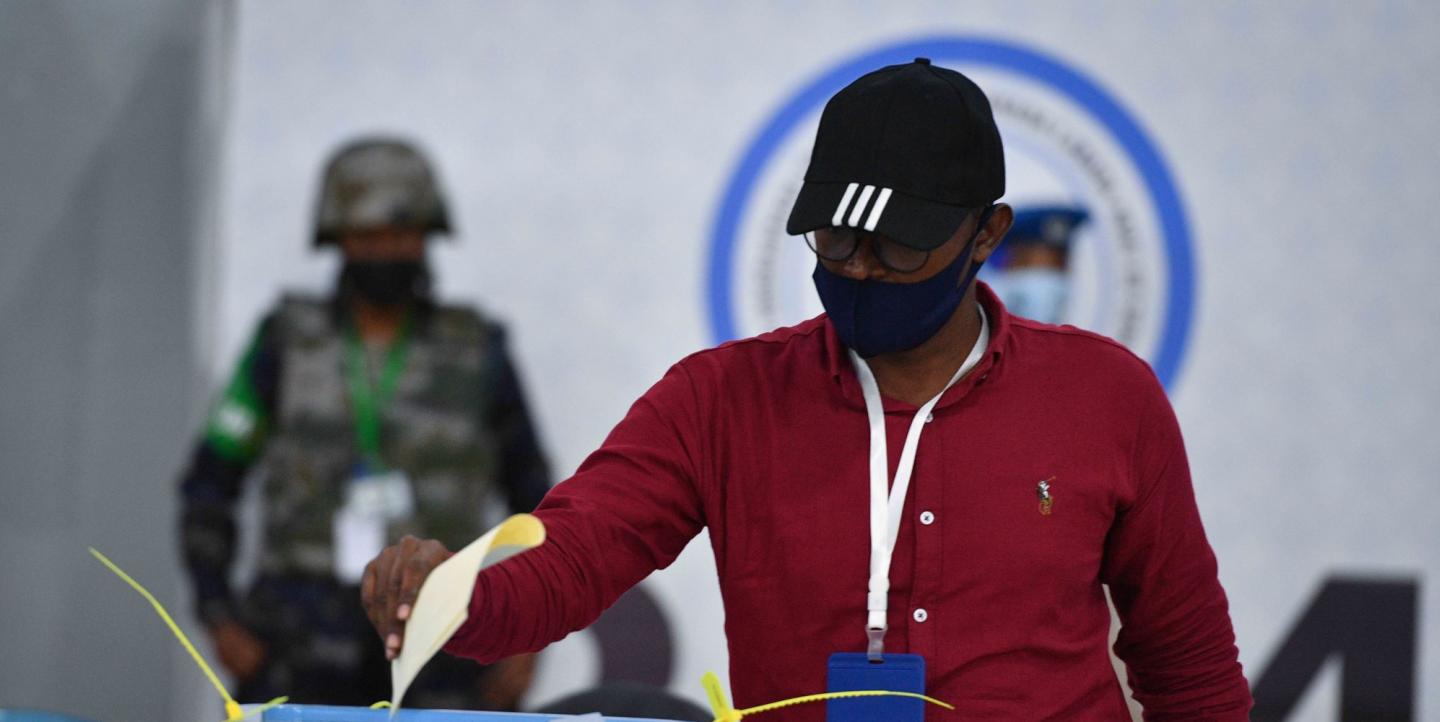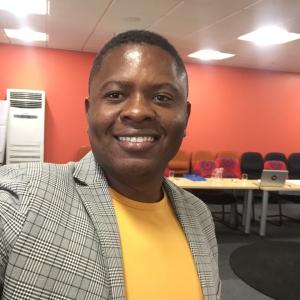Hate speech and disinformation spread online during Liberia’s 2020 elections sought to discourage women candidates from running for office. Some of the candidates experienced violence, as a result.
In an effort to combat hate speech and disinformation during the upcoming Liberian general elections in October 2023, the United Nations Development Program (UNDP) launched iVerify, an automated fact-checking tool, under the Liberia Electoral Support Project.
Local Voices Liberia (LVL), a network of journalists based in the capital, Monrovia, manages the app. “The iVerify project is run by LVL with five dedicated [full-time] fact checkers with an editor or supervisor based at our main office in Monrovia. In addition to the six people, there are also 14 mobile fact-checkers who are based in the counties,” said Alpha Daffae Senkpeni, LVL’s executive director.
Among other aims, iVerify will seek to minimize the politicians' use of hate speech and disinformation to influence voters in Liberia's 2023 elections, explained Senkpeni. “It is expected [the iVerify project] to contribute towards information, resource and knowledge sharing by establishing databases that allow all relevant actors to access reports and knowledge about where misinformation is likely to emerge,” he said.
Other media and civil society organizations are assisting the fact-checking by sending dubious claims to the app to be fact-checked. They also help amplify LVL’s published fact-checks.
Amid the rise of digital platforms and the rapid distribution of information – both factual and otherwise – journalists play an essential role keeping the public informed, said Gianpiero Catozzi, UNDP's elections senior advisor: “Every implementation begins with an assessment so that a long-lasting, unique and context-relevant tool can eventually contribute to a positive information environment both during and after the elections.”
Debunking disinformation
The iVerify app has already helped fact-check false rumors surrounding the country’s voting system. In March, the LVL team debunked a story claiming that the U.S. government had assigned 200 monitors to Liberia to oversee the implementation of biometric voter registration.
One step LVL took was to consult the United States Agency for International Development (USAID) over WhatsApp about whether the claim was true or not – it wasn’t.
As in other countries, it’s not uncommon for Liberian political figures to make campaign promises on social media, in public debates and live interviews. "The question is whether those elected will be able to keep their electoral pledges. LVL focuses on such promises by holding politicians accountable and we publish findings on the website,” said Senkpeni.
Political parties in Liberia are using hate speech to degrade their opponents, too.
“If the threat of hate speech and propaganda is not limited or curbed, it may influence the electoral process. This may lead to electoral violence or manipulation of voters, who may make uninformed decisions at the poll because of the disinformation campaigns,” said Senkpeni.
Improving reporting practices
Alongside their fact-checking, iVerify hopes to improve Liberian media’s reporting practices. Journalists today are better able to verify information before publishing and not relying on usual ‘he said’, ‘she said’ reporting, explained LVL fact-checker Jerry Gaye.
“Stakeholders in Liberia are currently making decisions from an informed background with the help of fact-checked reports, unlike before. The media on the other hand is not just reporting what public officials say daily, instead they are verifying before publication,” he said.
Many media outlets and journalists in the country use LVL’s fact-checked reports for news stories, confirmed Gaye. “When a report is published on our website, it is shared with radio stations and newspapers across the country. Some of the reports are published in the local dailies and read on major news programs in the country.”
Free, fair and safe elections in October will in part rely on how the media disseminates verifiable content to enable a transparent, inclusive and peaceful process, Gaye added, “For voters or citizens to make the best decision, it is crucial to fact-check and refute information before, during and after the election because false information, misinformation and hate speech have the potential to compromise the fairness of the process.”
Main photo by AMISOM via Iwaria.


